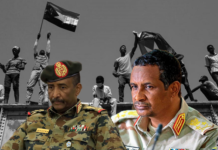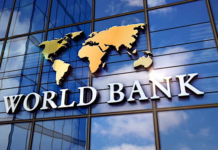By Mona Alam Eldin
Terrorism is a phenomenon that is widespread among nations today that Started in the beginning of the twenty first century. The Effects of terrorism include injuries, deaths and psychological trauma of immediate victims, short and long-term impact on the economy and enhanced security, military and intelligence activities to break up future attacks cause panic and distress to people. Terrorism often creates publicity for the groups or Individuals initiating the attacks, which is often their objective. Besides the injuries and deaths immediately brought by terrorist attacks, survivors often suffer from post-traumatic stress disorder, anxiety and major depression.
The economy suffers an immediate impact due to its negative impact on tourism and infrastructure damage, but it also suffers a long-term effect from trauma to financial markets crashing, as well as, a rise in spending on security at land, sea and air border crossings add to the country’s baudget burdens. The economic impact arising from the September 11th, 2001 attacks in USA were an initial shock causing global stock markets dropping sharply, and resulted in approximately US $40 billion in insurance losses, making it one of the largest terrorist events in history. Also many countries in the Middle East and North Africa have been at the centre of violence as the region has suffered from both domestic and international terrorist activities. There is no religious justification that explains terrorism, but it has been suggested accordingly due to globalization that has contributed to outbreaks of terrorism violence.
People involved in terrorism activities are organised groups with different Ethnic or religious motivations, complemented by actions of groups or isolated Individuals driven by social or psychological stresses or the fabricated ideology developed by the terrorists growing media audience. Terrorist groups are implimenting organised crimes activities for the purpose of profit or media coverage, and in general require financial support to achieve their goals. Accordingly, and over the past couple of years smaller terrorist groups started associating them selves with ISIS for financial support and media coverage.
Financing the terrorism industry is the main factor that drives its growth. Sponsor countries of terrorism, with sufficient resources to support large-scale actions of terrorist organisations started in the 1970’s, yet have increased recently with countries intelligence getting involved, along with single individuals able to provide support to terrorists for a cause. Both factors regretably lead to the growth of terrorism globally.
Social and economic frustrations fuel its human resources, through poverty, Corruption, psychological disturbances and social inequality, as well as, Double standards held by World powers and World Organisations lead to the emergence of Structures willing to make radical changes.
In recent years, the religious Impact on societies has increased leading to an ill-logical understanding of the terminology of “Jihad” that has been translated to a distorted extreme, struggling with sects for a more spiritual and justified world, yet a stronger resistance in secular ideologies has created an intentional war of miss-communication.
Terrorist attacks deeply impacted the World’s economic activities, mainly cross-boarders investments. In terms of investment growth during the period 1994 – 2013, it was concluded that the worst countries affected by terrorism attacks were Iraq and Pakistan (Recently this week Pakistan’s economy has been announced as back on-track). Terrorism affects the nature of investors who aim for a stable system providing security for developing positive returns based on economies of scale. Discouraging foreign direct investment affect the stock market and lead to increased savings which has a direct impact in leading to less cash flow circulation in the veins of the World’s economy.
Terrorism attacks have grown to be rapid, spontaneous, precise and with fixed targets, which affects both citizens and tourists alike. Tourism suffers when terrorist attacks are prolonged. Terrorists are fully aware of their actions and the damaging impact of their acts over a nation’s tourism industry whether through tourists kidnapping or setting a bomb. At the same time terrorists intentionally create national and international disputes through tactics that involve destroying touristic sites and institutions, shooting tourists, and targeting entities of political and economic significance creating instability and severely affecting one of the main foundations of the economy. The World Tourism Organisation estimated that the losses in terms of International tourism receipts are approximately 105 billion dollars.
In order to achieve an economic recovery from terrorism, it is vital to Address key areas of uncertainty. First, it is necessary to identify whether an event was just one isolated attack, or the beginning of a series of attacks. Terrorist acts branch out a main source that stands as the main ideology and is represented currently by “ISIS”. If this is the main tree then eliminating its funding, human resources and its ideology is a world target to re-enhance the economy. Recovery from terrorism is possible and can be achieved over a short or long term process of a series of terrorist acts. Yet, it is essential for all countries to agree on defining terrorism, cooperate on eliminating its roots and in doing both have the wisdom to avoid a world war that may destroy a civilization.















